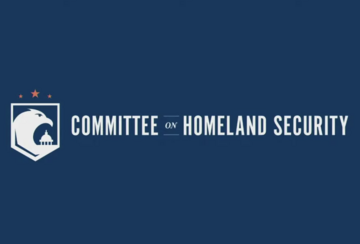News

A new study illuminates the potential effects of anti-Chinese sentiment in Korea.
In February the Consulate General of France, and the Content Policy & Society Lab convened a seminar to discuss online content moderation and the ways forward in 2022

Final Projects from the Stanford Internet Observatory's Online Open Source Investigation Course
Research on inauthentic behavior on TikTok, misinformation on Stanford's campus, Telegram activity in Belarus, health insurance scams that run advertisements on Google, and QAnon content on Tumblr.

Many of our program alumni have played important and influential roles in the country's political, economic, and social development, and have their own perspectives in what follows on why it is important for the international community to pay attention to what is going on in Ukraine and how the crisis is affecting them personally.

Biometrics have great appeal to those concerned with public health — but they can also be used for far darker purposes.

The Little Red Podcast interviewed FSI senior fellow and SCCEI co-director Scott Rozelle on their podcast to discuss whether common prosperity in China can trickle down to the countryside or not and how China's rural population came to be where they are today.

North Korea Is Becoming an Asset for China
North Korea Is Becoming an Asset for China
Pyongyang’s Missiles Could Fracture America’s Alliances
News, highlights, publications, events and opportunities from our programs and scholars
From women's health and reproductive rights in India to cybersecurity issues in Washington D.C., students from the 2022 cohort of the Ford Dorsey Master's in International Policy are tackling big policy projects in the Policy Change Studio.

Movers and Shakas is an initiative to attract remote workers, especially returning kamaʻāina, to create a more innovative, resilient, and sustainable Hawaiʻi.
The new chair of the Racial Equity, Diversity, and Inclusion Task Force, Professor Beatriz Magaloni, discusses the group's final report, which makes recommendations on how to address the ways in which systemic racism manifests at Stanford and FSI.

Amy Zegart joins Michael McFaul on World Class podcast to talk about Spies, Lies and Algorithms, her new book exploring how the U.S. intelligence community needs to adapt to face a new era of intelligence challenges.

In her new book, Stanford scholar Amy Zegart examines the evolution of the U.S. intelligence community and how technology is changing how it operates.
Paul Edwards and eight other faculty from Stanford and SLAC are among the 564 new Fellows of the American Association for the Advancement of Science.
The ongoing South Korean presidential race holds significant sociopolitical implications for the future of democracy as democratic backsliding has now become an undeniable reality in South Korea.

COVID-19 Disproportionately Affected Marginalized and Rural Populations in Asia, New Study Shows
In the first report of its kind comparing the impacts of the pandemic on people with chronic conditions in five Asian regions, researchers including APARC’s Karen Eggleston document how the pandemic’s broad social and economic consequences negatively affected population health well beyond those directly suffering from COVID-19.

Professor Yujin Yaguchi, University of Tokyo, Offers Lecture on Pearl Harbor for Stanford e-Japan
Professor Yujin Yaguchi introduced diverse perspectives on Pearl Harbor to 27 high school students in Stanford e-Japan.

The Stanford Internet Observatory's Matt Masterson and Alex Stamos spoke at a virtual hearing on the importance of policy work in order to secure American elections.

New research in 'The China Journal' by APARC’s Jean Oi and colleagues suggests that the roots of China’s massive local government debt problem lie in secretive financing institutions offered as quid pro quo to localities to sustain their incentive for local state-led growth after 1994
Lobell’s groundbreaking work has advanced the world’s understanding of the effects of climate variability and change on global crop productivity.

Up to three fellowships are available to Stanford Ph.D. candidates. Submissions are due by April 15, 2022.

NASA Harvest Partners At Stanford Expand Lidar Applications To Create Wall-To-Wall Crop Type Mapping
NASA Harvest partners at Stanford’s Center on Food Security and the Environment (FSE) recently published a study on their efforts integrating lidar (Light Detection and Ranging) and optical earth observation (EO) data to improve crop type mapping in areas with low training data availability.
How well do platform reporting flows and context labels work with screen readers for the visually impaired?




![[Left to right]: Michael McFaul, Marshall Burke, Steven Pifer, Oriana Skylar Mastro, Didi Kuo, and Amichai Magen on stage.](https://fsi9-prod.s3.us-west-1.amazonaws.com/s3fs-public/styles/480x270/public/2024-10/fsi_reunion_2024_panel_hero.png?h=c4d9845d&itok=s9RgEIqP)






